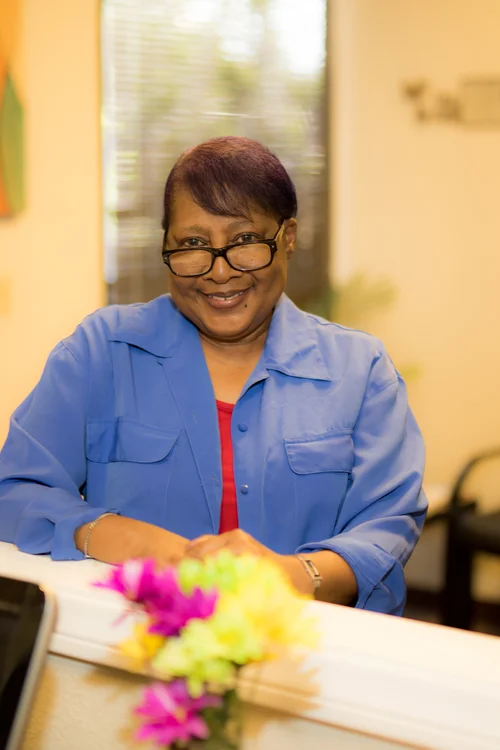Parent Café: Self-Care
Hi, I am back with more helpful tips and hints, this time for the care providers. We, as parents, are constantly reminded that our children/child comes first. That is partially correct as parents; we must remember that our children will need us at peak performance most of the time. Depending on their age group as to how much direct supervision and energy will be needed. Albeit it’s hard to find personal time to refuel our energy. We know that spending time with our children helps them to socialize and learn the values of the family as well as community standards. We will not be able to carry out parental duties in an effective manner without self-care.
What is self-care?
Self-care is any activity that we do deliberately to take care of our mental, emotional, and physical health. Though the question seems relatively simple of just how does a parent juggle all the tasks to do self-care? Self-care often gets overlooked or dismissed to a later date, often a date that never happens. Self-care is important for reducing anxiety as well as improving one’s mood. It is necessary for all people but especially for parents.
What isn’t self-care?
Self-care is not a forced act or something we don’t enjoy doing. A scholar once explained self-care is “something that refuels us, rather than takes from us.” https://psychcentral.com/blog/what-self-care-is-and-what-it-isnt-2/
Below are a few helpful self-care tips:
One of the main keys to not becoming overwhelmed by the steps in the process of developing a doable self-care plan. Keep it simple.
Developing a self-care plan that can help enhance one’s health, well-being and manage one’s stress.
Identify activities and practices that support your well-being as will assist you in sustaining a positive long-term self-care plan. Improving and increasing your life.
Another crucial factor is that a self-care plan is personal to you. Everyone’s approach will differ and should relate to the needs of you.
Self-care plans are useful for workplace/professional well-being, physical, psychological, emotional, spiritual, and relationships. Activities should be tailored to and meaningful to one’s self and intended goals.
Physical self-care should include a regular sleep routine, healthy diet, walk, and exercise.
Psychological self-care consists of reflective journaling, hobby, time away from emails and social media, relaxation, positive interaction with family and friends.
Emotional self-care encompasses developing supportive friendships, write three good things that you did each day, play your favorite sport, and talk with friends about how you are coping with life demands.
Spiritual self-care involves reflective meditation, walks, visit your church/mosque/temple, yoga, reflect with a close friend, download the 1 Giant Mind app, and learn mindfulness techniques and its benefits.
Once the plan has been drafted, keep it in a visible location, stick to your plan-practice regularly, and re-assess how you are doing and if it needs adjustments.
Once you create your plan, do a cursory check for any barrier that might hinder you from moving forward. Also, what can you do to remove these barriers? If they cannot be removed, then one might adjust their self-care strategies.
Finally, relationship self-care involves making close relationships, e.g., partners, family, and children a priority attend dedicated events with family and friends, arrive to work, and leave on time every day.
Access the links below, to download and chart your self-care plan, it is really easy to do.
https://schools.au.reachout.com/articles/developing-a-self-care-plan
http://socialwork.buffalo.edu/resources/self-care-starter-kit/developing-your-self-care-plan.html
Another method of self-care that I want to reintroduce are the benefits associated with mindfulness techniques/exercises. Let’s start with what mindfulness is: The term mindfulness refers to a psychological state of awareness, the practices that promote this awareness, a mode of processing information, and a character trait. To be in step with up-to-date research, mindfulness means also “a moment-to-moment awareness of one’s experience without judgment” This definition can be found by clicking here.
Mindfulness-based skills can help both adults and children to cultivate emotion regulation, decreased reactivity, and increased response flexibility, and intrapersonal benefits.
The 5 most common benefits of mindfulness are:
✔ Decreased Stress
✔ Decreased Depressive Symptoms
✔ Increases Self-Compassion
✔ Improved General Health
✔ Increases Positivity in Mental Health Outcomes
Deep Breathing (Mindfulness Exercise) promotes:
Breathing for Enlightenment-develops deep insight
Breathing for Relaxation-helps quieten and clear the mind
Breathing to Let Go of Negativity
Breathing for Inner Peace
Breathing to Learn about Your Body
Breathing to Connect Mind and Body
Source: https://eocinstitute.org/meditation/meditation-and-breathing-benefits-of-mindful-breathing/
Incorporating mindfulness exercises into one’s self-care plan is an added benefit, a benefit that brings positive returns. As this will, i.e., practicing mindfulness will engender a whole-body healing, relaxation, and a peaceful mind and spirit. Therefore, one will likely return to the task at hand with an increase in their self-care toolbox, an arsenal of ways to bringing calm, peace, relaxation, and clearer thinking.
By Valerie Fluker, MA, APCC
All people come to counseling to relieve pain and suffering. They feel they have little to no hope left. What they have been doing isn’t working anymore or maybe never did. They feel out of control, scared, and do not know where to turn. Or they may need education in the form of Parenting or Co-parenting classes. Or some just need to work on relationship issues or manage anxiety. Regardless of what brought you to this website I can help. I am caring, understanding and I want you to feel better. I see great things happening for most people within a few sessions. These clients start to feel happy, gain more confident and report they are satisfied with their life. While I cannot guarantee you the same results, I have seen positive results with most clients.
I became a counselor because I wanted to harness great hope and positive energy and to help install healing for my clients. I consider working with people in therapy an honor and privilege to work with each client. In therapy, each person develops their positive mental wellness plan and great growth often takes place.
I discovered my passion for counseling teens while volunteering for Riverside Youth Probation. I enjoyed seeing these teens learn and grow as they figure out who they will become. I also work with caregivers of dementia clients and I see the struggle to care for their loved one. I frequently work with people that suffer from depression, anxiety and trauma. I have specialized training in trauma, working with children and elder adults.
I am a member of the following professional organizations:
Purple City Alliance helps make The City of Riverside a Dementia Friendly City.
American Counseling Association (ACA).
I look forward to meeting and working with you.


